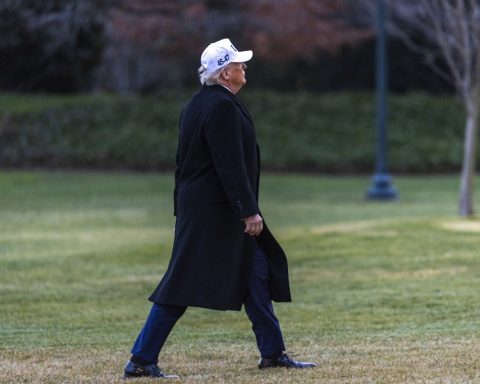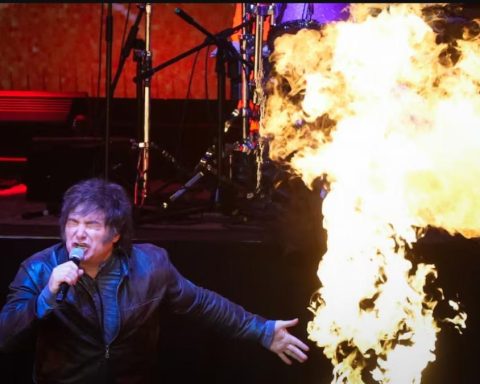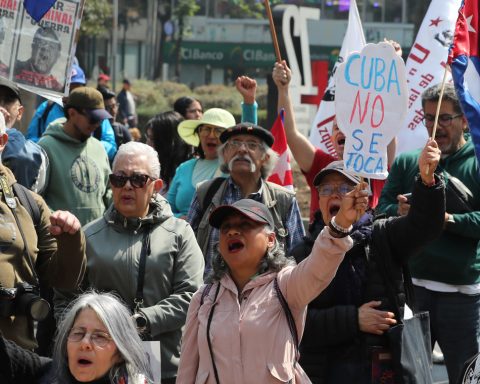Once the Agreement was signed by Chile, the political class demonstrated that negotiations and dialogue are still fertile ground for generating paths for constitutional changes. There is criticism from one side and the other, even President Gabriel Boric himself said that it was an “imperfect” agreement, but the certainty is that the negotiations in the halls of the former Congress ended, to enter into a new constituent process.
The so-called “Agreement for Chile”, which has yet to be approved by Parliament as a constitutional reform, defines that the proposal for a new Magna Carta will be drawn up thanks to three key bodies: the Constitutional Council, the Admissibility Technical Committee and the Expert Commission . This last one is the first to be installed and, like the other instances, it is not exempt from entanglements and deserves clarification.
In January 2023, the Expert Commission of the constituent process begins to operate. It will be made up of 24 members of “indisputable professional, technical and/or academic trajectory”, says the official document, and each person that integrates it will have a remuneration of 30 UTM ($1,800,000, approximately).
There will be 12 people nominated by the Chamber of Deputies and Deputies, and 12 by the Senate. The definition of experts is broad, which is why Tomás Jordán, a constitutional lawyer and political scientist, helps to define the idea: “It has to be a person who has thorough knowledge of an area to qualify as an expert, but it does not necessarily have to be from the Legal area”.
The Commission “will be in charge of drafting a draft that will serve as the basis for the discussion and drafting of the new constitutional text, in the style of a matrix idea of the same,” says the Agreement for Chile. The constitutional lawyer and doctor of law from the University of Chicago, José Francisco García, explains that, although the definition is broad, the constitutional lawyers will also be part of this Commission, since “there is a special expertise that is important for the Constitution and It is the one that lawyers have and, in particular, constitutionalists”. This, due to the fact that “a legal text and fundamental law of the rest of the laws” is going to be drafted, he adds.
The former undersecretary of the Segpres, Máximo Pavez (UDI), who was also on the drafting team of this constitutional reform, points out that “there will be people who will be linked to the constitutional world and perhaps others who will not, but who may have a vision of the State ”. The important thing, he adds, is that “they can represent a dispassionate view of the situation and that they can project a constitutional debate and, for that, you don’t have to be a lawyer.”
Senator Ximena Rincón (Democrats) has met with the former Presidents of the Republic to invite them to form part of the Commission and that possibility has given rise to talk. However, the three specialists dismiss it as a good idea. They warn that, although the nomination is legitimate and they could be considered experts, they would prefer their participation to come from a more collaborative and consultative space, such as in hearings for the Constitutional Council.
The incidence of the Commission in the debate
How much more or how much less the word of the experts will affect depends on the stage of the process. And these stages are three.
In the first, the Expert Commission is in charge of preparing a draft, a non-binding draft, which could serve as the basis for the discussion that the Constitutional Council will have.
Then, during the discussion of the constitutional norms, the Commission will only have the right to speak, therefore, it will not directly determine the result of the voting. In the event that a norm does not reach consensus, the initiative will go to a Mixed Commission that will be made up of 12 people: 6 experts and 6 advisors, where the knot will be resolved with 3/5 of the votes. In the event that the rule fails to reach a quorum either, the Committee of Experts will have to prepare a rule proposal for the Constitutional Council to vote on it again.
In the last stage, in that of harmonization, the Expert Commission can only mention issues of style and understanding of the text, that is, it cannot modify the norms already approved by the Constitutional Council.
Criticisms of the expert formula
According to the latest data published by Cadem, 46% of people would disagree with the new Constitution being drawn up by 50 elected constituents and 24 experts. It is that one of the aspects of the agreement that has been put into question, mainly by Comunes, is that the Expert Commission represents “excessive tutelage” to the constituent discussion.
García was in the drafting of the constitutional reform of the agreement of November 15 for the previous constituent process and has also studied the comparative experience: “A model like the one that is being proposed now, in which the experts have so much influence, including the right to I vote in a Mixed Commission, it is difficult for me to find a similar case”. The Doctor of Law adds that “the power that our experts will have in this process is quite high.” However, he also warns that “it does not mean that there are no comparative experiences where they have not played a significant role”, such as what happened in South Africa, Kenya and Iceland.
For Jordán, on the other hand, the participation of the Expert Commission in the Mixed Commission does not represent a very high position of power, but rather “seeks to solve a problem so as not to leave without a text or leave a text with rubble.”
Another criticism that the agreement received was the lack of legitimacy that the Expert Commission would have due to the fact that it was nominated by the political parties. The way in which the agreement resolves the controversy is through the Constitutional Council, a 100% elected body and where the constituent power rests. However, specialists warn that the choice of experts is the main source of legitimacy for the process.
The parties have “full responsibility”, says Pavez, for choosing good specialists. The former undersecretary adds that the signal that they will deliver with the list of experts is crucial: “The political parties that make up the parliamentary forces are going to project their seriousness in the process itself, therefore, it is a way of holding the political world responsible for what that will happen within the Expert Commission and the Constitutional Council”. However, he rules out that democratic legitimacy is in doubt, because it is given by the National Congress, as it also operates “to dictate laws or elect the directors of the Central Bank.”
“The Expert Commission holds the legitimacy of knowledge, but for that there must be experts, not disguised political operators,” García points out. That is why he agrees that the choice of payroll is key to the development of the process. The specialist explains that if the Expert Commission comes up with a bad basic proposal and the Constitutional Council rejects it, it would lose “the authority of knowledge, let alone have a democratic one.” García adds that “the parties have to be very careful in effectively appointing experts so that the authority of knowledge prevails.”
Law professor at the Alberto Hurtado University, Tomás Jordán, believes that the division of tasks is clear, therefore, the legitimacy of this body is not in question: “The deliberative body, the one that votes, the one that decides which to be the constitutional norms, is the Constitutional Council. The Committee of Experts functions, therefore, as an advisory body, collaborative with the Constitutional Council.”
The parties are prepared by block
The president of the Socialist Party (PS), Paulina Vodanovic, understands that the election of the list of experts is a “conversation between all the parties, because the number of them depends on the percentage of parliamentarians in each of the chambers.” Vodanovic points out that it is important to agree between the parties “to have differentiated profiles, not just the vision of the legal professional.” In addition, another aspect that would lead to coordination between benches is the parity criteria that will govern the formation of the Commission.
The president of the PS dismisses that the parties go for “neutral” people, since that total impartial figure “does not exist.” However, they will go looking for experts who “are representative of their profession and technical quality, but also have a coherent vision with those they are representing”, that is, in this case, the PS. A main interest that the president has for this Council is that “the world of workers is represented”, either from the academy or another specialization.
In the case of the UDI, the preferences are naturally different. Senator José Durana (UDI) admits that he is not sure of approving this constitutional reform and that this has socialized him with his co-religionists. However, there are guidelines that his party has defined and there are three: “Demonstrable career as an expert, who represents the bench of Chile Vamos and who is capable of dialogue.”
Regarding the areas of performance that they expect from these experts, there are security, water resources and agriculture and “of course in constitutional matters,” Durana details.
In this line, Pavez hopes that all the parties look for people capable of creating a text that “represents a social and political pact.” In the Expert Commission, although it requires technique, “you can also have a political discussion, but as long as it is not colored by the situation,” says the lawyer.


















